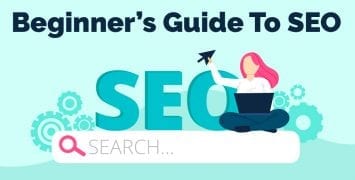How important is your ranking on the search engine results page?
Your position in the search engines has a huge effect on your business. If you’re on the first page, you’ll draw roughly half of all organic traffic.
Do you want the first spot on the first page of the SERP? I imagine just about everyone said yes! But obtaining that top spot involves a ton of time and effort. Is this the best use of your resources?
Not necessarily. Sometimes you’ll draw greater traffic using other methods. While you always want to place on the first page of the results, don’t sweat too much about obtaining that top spot.
The Mystery Behind Search Rankings
Google is notoriously secretive about their practices. While Internet marketers have a pretty solid grasp on what SEO techniques can help, the truth is this:
Nobody knows the exact ranking factors which can take your site to the top.
If you’re consistently ranking in the top ten on the results page, you could spend a ton of time trying to get to the number one spot. But the problem is there’s no exact formula you can follow. All the trial and error you spend trying to improve your SERP only a little might just be a huge waste of time.
Placing on the first page of results is the main goal, not becoming the absolute number one in ranking. Over 70% of traffic for a keyword comes from sites on the first page. That alone will have a bigger impact on your organic traffic than the specific spot you hold.
In order to improve your organic rankings, here are your two first steps:
- Perform an On-Page SEO audit
- Implement a link building campaign
Predicting the Google Algorithm
The only constant here is change. In 2011, Eric Schmidt actually testified before Congress where he said Google is constantly refining the way they organize and display information. That’s truer today than ever before.
There’s no substitute to knowledge. You’ll have to stay reasonably up-to-date on changes to the algorithm. Check back for my latest blogs posts here and I’ll be sure and let you know all the latest news!
Google vs. Bing
Google isn’t the only search engine on the web, of course. And not all search engines look for the same things when determining a site’s ranking. Here’s what you should know about Bing:
- Flash can help increase your ranking
- Exact match keywords and anchor text matching are preferred
- There’s a strong integration between ranking and social signals
But don’t worry too much about staying up-to-date on every search engine. The general rule is this:
If a site performs well on Google, the chances are high it will also perform well on Bing and Yahoo. Use your Google ranking as your primary metric, but don’t forget to check how you’re doing on the other search engines, too.
Use Other Methods to Attract Customers
People don’t always find a brand by using a search engine. So you need to promote yourself in other ways in order to reach the largest potential audience. This means engaging and connecting on social media.
You also want to optimize your social media for mobile users. People spend an average of 90 minutes a day on their mobile devices. Much of this on social media sites. If you want people to visit your social media site, anticipate their mobile needs. This includes:
- Clear, mobile-friendly design
- A click to call button
- If you have a physical location, include the address and mapping tools
The Power of Apps…
…might not be as important as you think. Mobile apps consume about 84% of a user’s time on a smartphone. But there’s an important caveat here. Most users only use about four or five apps on a regular basis.
Developing an app for your business can be useful but it’s not really a necessity. Don’t spend too much time designing ways to draw customers to your app with coupons or other promotions. Developing an app isn’t usually an important priority.
Being number one in the SERP is great. But it’s not the only way to find success. Concentrate on staying on the first page of results and you’ll find a steady stream of organic traffic.




